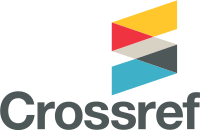The Status of Official Languages in the Multilingual European Union
DOI:
https://doi.org/10.56384/jes.v40i1.335Keywords:
Linguistic equality, official languages in EU, working languages in EU, egalitarian policy, multilingualismAbstract
The European Union (EU) comprises 27 nations and uses 24 official languages to acknowledge diversity and equal opportunity in the Union. This is an egalitarian policy, which is met with resistance and challenges due to various practices in the EU administration and management. A consecutive policy debate persisted in EU thinkers to decide the official language of the Union, while the nature of the public sphere was multicultural and multilingual.
This paper explores factors behind the hurdles to achieving linguistic equality in the EU by looking at various institutional policies and scholastic papers. The research concludes that linguistic equality is theoretically idealised to promote linguistic harmony in the bloc, however, it is practically unattainable because prominent official and working languages like English, French and German trump other official languages of the EU member states. In addition, making everything available in all official languages of the EU is quite limited to avoid cost burden.















